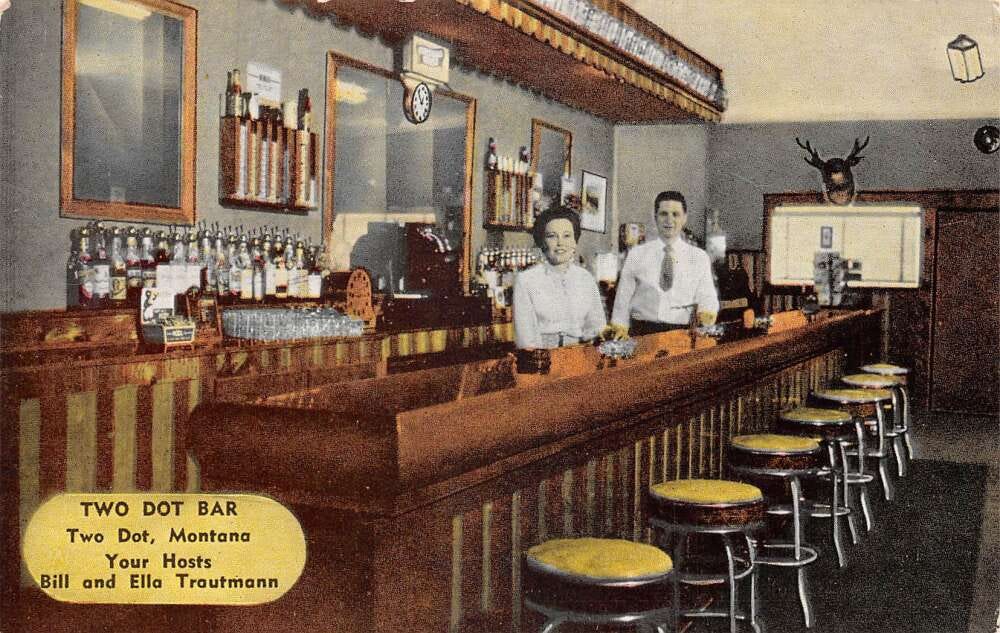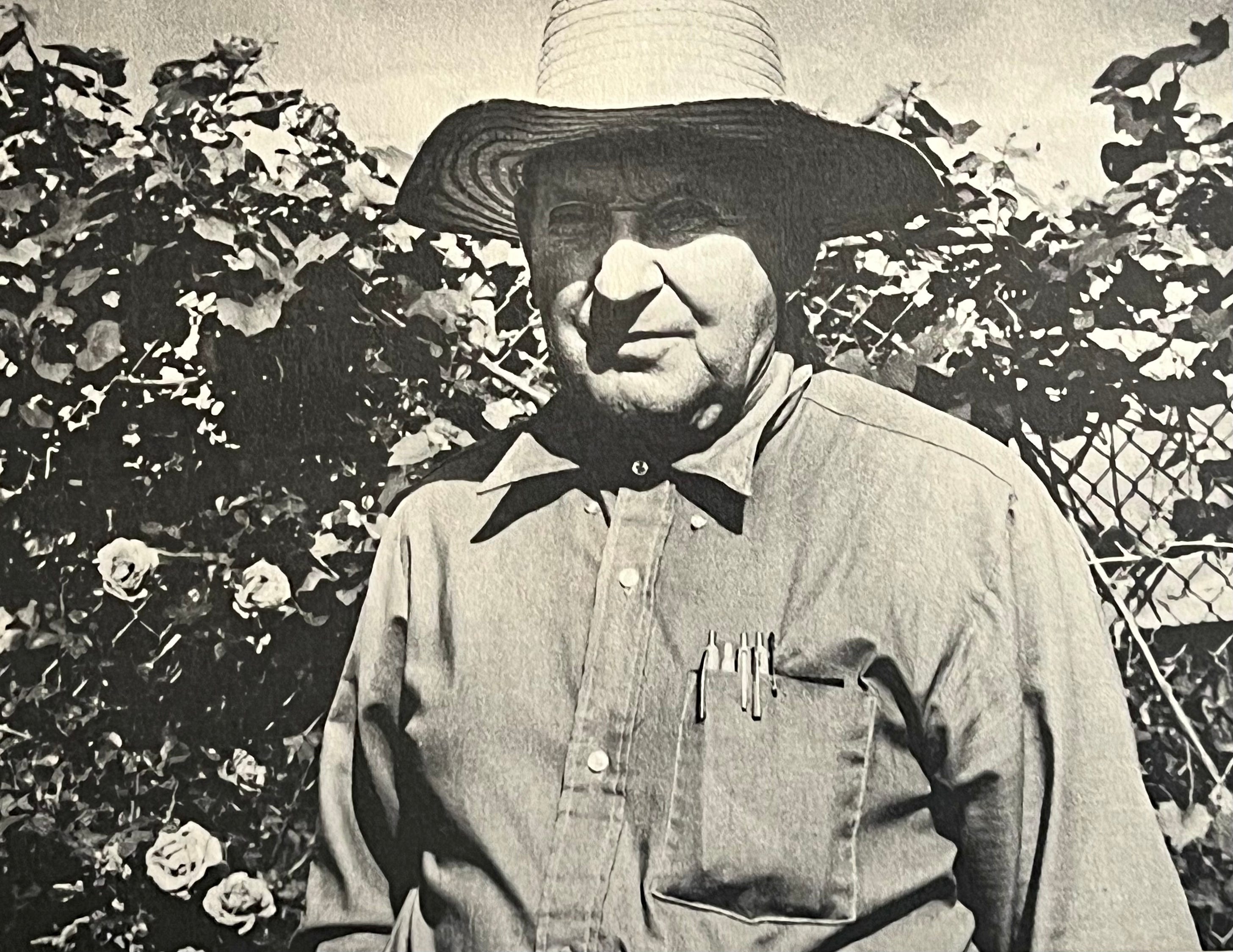Two Dot, Montana, with a current population of 26, was established in 1900 by a local rancher, George R. Wilson, who named it after his cattle brand. The town sits on U.S. Route 12, on the banks of the Musselshell River. At one time it was a station stop for the Chicago, Milwaukee, St. Paul and Pacific transcontinental line but today it’s a sleepy little backroad place. It does have its own bar. ListenKenneth Ward Atwood (1898-1983)If you’ve been reading along each week, you’ve noticed that Cowboy Sutra is dedicated to three old-west singers. The other two were nineteenth century cowboys, gone long before my time. I had the chance to know Kenneth Ward Atwood, however, firsthand. He was not a working cowboy, but he had a great old-style sense to his music. Atwood grew up in the farming community of Crescent in the southeast corner of Salt Lake County. He farmed and worked as a logger. He drove a team and wagon in the Uintah Basin of eastern Utah, and ended up working as a brakeman for Kennicott Copper, living in West Jordan not far from my family’s farm in Bluffdale. I met Atwood when I was collecting songs for The New Beehive Songsters, a two-volume collection of Utah folk music field recordings. Jan Brunvand, Tom Carter and I edited the collection and I learned about the singer after Atwood’s granddaughter Mary Lou brought some of his recordings to Brunvand’s folklore class at the University of Utah. Jan shared the recordings with me and I contacted Mr. Atwood making my own recordings of his repertoire. In 1976, I had the honor of accompanying him to the Festival of American Folklife Washington, D.C., where I introduced him on stage on the Capitol Mall. As we got on the airplane to fly back East, Atwood confided that he’d never flown before. I knew he was not world-wise, and in some ways he seemed vulnerable and yet he embodied a quiet power. I admired his simple and straightforward faith, and he had consistency, something I wished for as a young man. I loved his songs, most of which I’d never heard before. We became friends and when he passed away in 1983, his family asked me to sing a couple of his songs at the funeral, including this one. It was one of the great honors of my life. The Song’s BackgroundWard Atwood called this song “The Old-time Trapper.” It’s more of a ditty than a full-fledged song, but I married it with a little banjo melody and renamed it “Two Dot.” Mr. Atwood told me that he learned the song from two trappers who wrote it when they were stranded in the mountains for the winter. In the song, a trapper laments that the Montana country has been trapped-out, and he will have to go to Canada. Once there, though, he expects to find game so plentiful that he can round ‘em up and simply lead them into a corral. He’ll make a fortune and then move back to Two Dot and live happily ever after. I start my song off with a little banjo tune that sprouts into song. I also added harmonium and just a touch of synthesizer that creates a sound resembling the koto, the zither-like national instrument of Japan. K.W. Atwood singing “Old-time Trapper” “Two Dot” or “Old-time Trapper,” LyricsI am an old-time trapper and I’ve lived all ‘oer the streams I’ve lived on corn bread, bacon, and beans Well, in that glorious valley where the river Judith flows I caught the fine fur bear where the diamond willow grows Then I’ll trap no more on the Judith or the muddy Musselshell For I’ll take ‘em on up to Canada, where I’ll round ‘em in a corral And when I’ve gone a few short years I will begin to save And I’ll bring it all back to old Montana to the place I love so well To the little town of Two Dot, On the banks of the muddy Musselshell To the little town of Two Dot, On the banks of the muddy Musselshell To the little town of Two Dot, On the banks of the muddy Musselshell You're currently a free subscriber to Loose Cannon Boost. For the full experience, upgrade your subscription. |
“Two Dot,” a song from Cowboy Sutra
07:17
0



